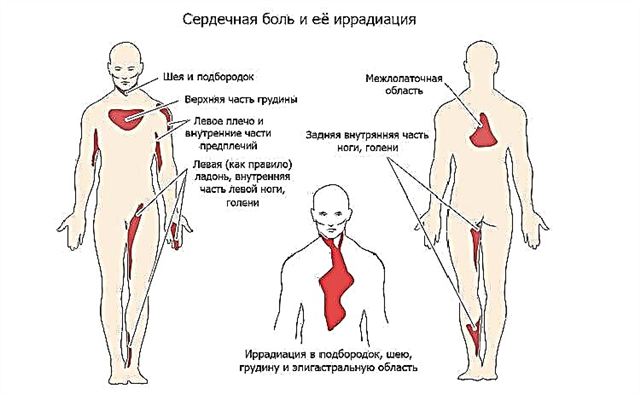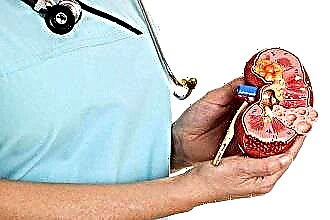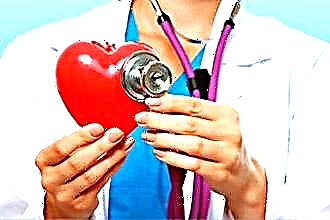A cough without fever in an adult or a child can appear against the background of a variety of disorders. Not only ARVI or ARI provoke it, but also more serious problems. If you find such a symptom, you should immediately consult a doctor. After the diagnosis is made, the specialist will prescribe adequate therapy and help alleviate the condition.
To understand how to deal with seizures, you need to understand why they appear.
Coughing is an important reflex
 For one deep breath, 3-4 liters of air pass through the lungs of a person. Our respiratory system filters and processes tons of oxygen per day, which is necessary for the normal functioning of all organs and organ systems. If infectious, bacterial or viral infections begin to develop in it, or other pathological processes occur, a natural protective reflex arises - a cough. With the help of a spasm, the bronchi try to get rid of foreign bodies.
For one deep breath, 3-4 liters of air pass through the lungs of a person. Our respiratory system filters and processes tons of oxygen per day, which is necessary for the normal functioning of all organs and organ systems. If infectious, bacterial or viral infections begin to develop in it, or other pathological processes occur, a natural protective reflex arises - a cough. With the help of a spasm, the bronchi try to get rid of foreign bodies.
Coughing is normal, especially in high-gas environments. It helps the respiratory system to remove particles of dust, dirt and other "debris" that interfere with the normal oxygen supply.
If a deep cough without fever disturbs a person for a long time, this is a reason to contact a specialist. Painful sensations, frequent frequency of spasms and other accompanying symptoms are a sign of serious illness.
What provokes a violation
To understand how to alleviate the patient's condition, you need to understand that cough is not an independent disease, it is only a syndrome indicating a malfunction in the body. A variety of violations can cause it. It is impossible to cure the spasm itself, you need to find the reasons that provoked it, and work to eliminate them.
 It can manifest itself against the background of such negative factors:
It can manifest itself against the background of such negative factors:
- inhalation of cold air;
- being in a dusty room;
- work with chemicals;
- prolonged stay in a room with dry hot air;
- drug abuse;
- smoking;
- stressful situations;
- drop in immunity;
- chronic and acute diseases.
A cough appears without fever or with a slight increase in it, most often against the background of respiratory diseases of the respiratory tract. However, it often happens that the symptoms are similar to other ailments. Let's consider in more detail what can provoke a violation.
Allergy
 When there is a cough, but there is no temperature, this may indicate an allergy. The body reacts to various agents, tries to "push" them out of the respiratory tract, which causes a spasm. This violation has other symptoms, it is accompanied by a runny nose, lacrimation. It can be called by:
When there is a cough, but there is no temperature, this may indicate an allergy. The body reacts to various agents, tries to "push" them out of the respiratory tract, which causes a spasm. This violation has other symptoms, it is accompanied by a runny nose, lacrimation. It can be called by:
- Pets;
- dust;
- pollen of plants;
- household chemicals;
- Food;
- some medications.
An allergist-immunologist can diagnose the disease after tests. This type of cough is characterized by periodicity, it appears only at the moment of contact with an allergen.
Treatment is carried out with antihistamines, which block the production of substances that react to irritants in the human body. Also, if possible, the patient is isolated from the very source of the disease.
Cold
 A cough can begin with hypothermia. In some situations, it is not accompanied by an increase in body temperature. In this case, the patient has a sore throat, a perspiration is felt, and a runny nose is observed. Most often, already on day 2, the body temperature rises, as the body tries to fight the infection. But this may not happen if the immune system is weakened.
A cough can begin with hypothermia. In some situations, it is not accompanied by an increase in body temperature. In this case, the patient has a sore throat, a perspiration is felt, and a runny nose is observed. Most often, already on day 2, the body temperature rises, as the body tries to fight the infection. But this may not happen if the immune system is weakened.
Colds, not accompanied by complications, are treated with folk remedies and special procedures. Medicines are rarely prescribed. The patient is shown bed rest, drinking plenty of fluids and diet.
For the time of recovery, you need to give up sweets, spicy, too salty, spicy and fatty foods. Also, you should not drink alcohol and smoke.
Infectious diseases
Viruses are the most common causes of coughs. If the spasm is not accompanied by sputum production, and coughing does not bring relief, this means that an inflammatory process has begun in the upper respiratory tract. The mucous membranes are dry, they cannot produce enough secretion to cleanse the bronchi.
Lack of temperature in this state is an alarming sign. This means that the body does not fight the infection, and it can easily penetrate into the lower respiratory tract. If timely treatment is carried out, then serious complications can begin, such as pleurisy, pneumonia, chronic bronchitis.
Depending on what causes the infection, antibiotics, antiviral or combination drugs are prescribed. It is important to start using them in the very first days of the disease in order to prevent complications.
Psychological disorders
 In medicine, there is such a term as "psychological cough." This is a stress disorder and can be compared to profuse sweating when a person is nervous. With such a violation, the throat does not hurt, there are no additional symptoms. It can be recognized only by its frequency, a spasm appears only in those cases when a person feels nervous tension.
In medicine, there is such a term as "psychological cough." This is a stress disorder and can be compared to profuse sweating when a person is nervous. With such a violation, the throat does not hurt, there are no additional symptoms. It can be recognized only by its frequency, a spasm appears only in those cases when a person feels nervous tension.
This type of cough is paroxysmal, but most often does not bring severe discomfort. Only in rare cases is the spasm very severe; most patients simply cough slightly.
You can get rid of this by solving the problem itself - eliminating stress. If this is not possible, drugs are selected that suppress the cough center in the brain.
Bronchial asthma
 A severe paroxysmal cough, which often appears at night, disturbs asthmatics. In this case, a spasm can begin with itching in the chest, chin or neck. During an attack, there is an abundant secretion of mucus, so the respiratory tract is trying to clear itself of foreign objects. To eliminate the violation, special inhalers are used.
A severe paroxysmal cough, which often appears at night, disturbs asthmatics. In this case, a spasm can begin with itching in the chest, chin or neck. During an attack, there is an abundant secretion of mucus, so the respiratory tract is trying to clear itself of foreign objects. To eliminate the violation, special inhalers are used.
You also need to eliminate the factors that provoke seizures:
- pungent odors;
- dust;
- excessive physical activity;
- food and chemical allergens.
Oncology
A paroxysmal cough in an adult can be caused by oncology. The reasons influencing the appearance of malignant tumors are very different. The process that has begun can be stopped only with the help of special procedures and surgical intervention, but only in case of timely referral to specialists.
Tumors can be located both in the respiratory tract and in other organs and tissues. The cough has its own characteristics: it changes character from time to time, the incipient spasm does not bring relief, only sputum appears over time. It is immediately slimy, at a later date there is an admixture of pus.
If malignant neoplasms are detected, complex therapy is prescribed.
Disruption of the cardiovascular system
 If a sore throat is not felt and a cough without fever disturbs the patient after physical exertion or in a certain position of the body, one can assume the presence of cardiovascular diseases. A spasm of the respiratory tract provokes stagnation of blood in the lungs, it sometimes even comes out partially along with sputum.
If a sore throat is not felt and a cough without fever disturbs the patient after physical exertion or in a certain position of the body, one can assume the presence of cardiovascular diseases. A spasm of the respiratory tract provokes stagnation of blood in the lungs, it sometimes even comes out partially along with sputum.
How to treat such disorders, the cardiologist decides after a detailed examination. The cough reflex can be triggered by:
- improper work of the left ventricle of the heart;
- ischemia;
- heart failure;
- recently suffered a heart attack.
Diseases of the gastrointestinal tract
A persistent or intermittent cough may accompany diseases such as reflux esophagitis, esophageal tracheal fistula, or esophageal diverticulum. Bronchospasm provokes the acidic contents of the stomach, which, due to physiological characteristics, is thrown into the pharynx and irritates its mucous membrane. Along with impaired breathing, the patient feels a heaviness in the abdomen and heartburn.... It is sometimes possible to correct the situation with the help of surgery or taking medications.
Chronic ENT diseases
 The causes of ENT disorders can be enumerated for a very long time. If the patient is "lucky" to get sick with them several times in a row or not completely cure, then they become chronic.
The causes of ENT disorders can be enumerated for a very long time. If the patient is "lucky" to get sick with them several times in a row or not completely cure, then they become chronic.
The cough reflex occurs when mucus constantly flows down the back of the throat into the larynx and causes irritation. Especially often attacks disturb patients at night.
Spasms cause:
- sinusitis;
- frontal;
- rhinitis;
- sinusitis.
Tuberculosis
A drop in immunity, poor nutrition and hard work can cause the activity of Koch's bacillus. Pulmonary tuberculosis manifests itself in the early stages by a constant dry cough, later there is sputum production, in the open stage the mucus comes out with the blood. The reasons can be very different; it is treated with the help of complex therapy. In addition to a lingering spasm, there is a loss of strength in the patient, a decrease in appetite, increased sweating at night, and a loss of working capacity.
Other diseases
Other ailments can also cause a disturbance in the work of the respiratory system. They most often have no direct relation to the bronchi and lungs or their mucous membranes, but indirectly affect their functioning:
- enlargement of the thyroid gland;
- side effects from the use of drugs;
- some sexually transmitted diseases;
- infection with helminthic invasions;
- work in adverse conditions.
In conclusion
Having a cough and not having a fever is a good reason to see a doctor. Only the attending physician, after making the diagnosis, can choose the most effective therapy.
It is contraindicated to prescribe funds for yourself even in the initial stages of the disease, in some cases this can only aggravate the situation. Trust your health to specialists and take care of yourself!



